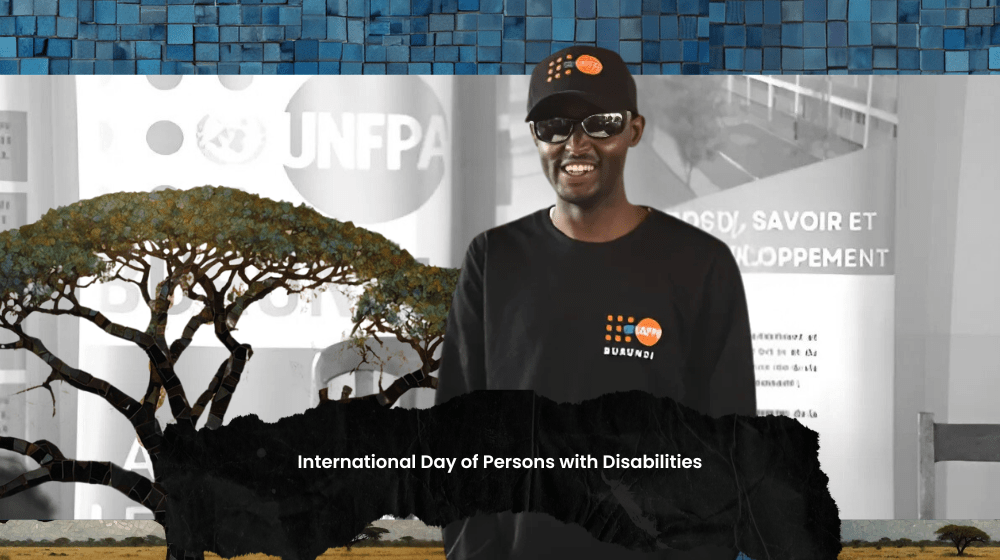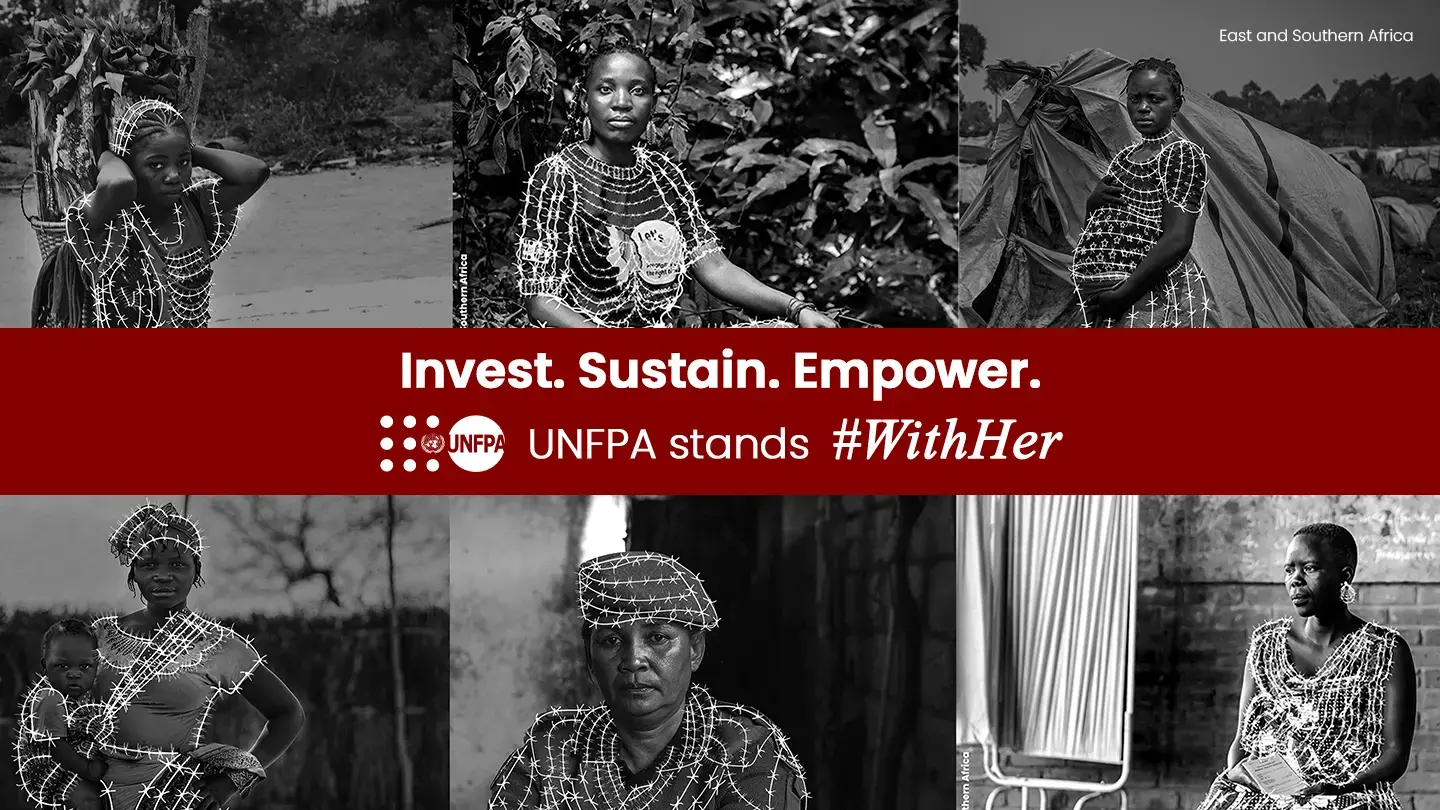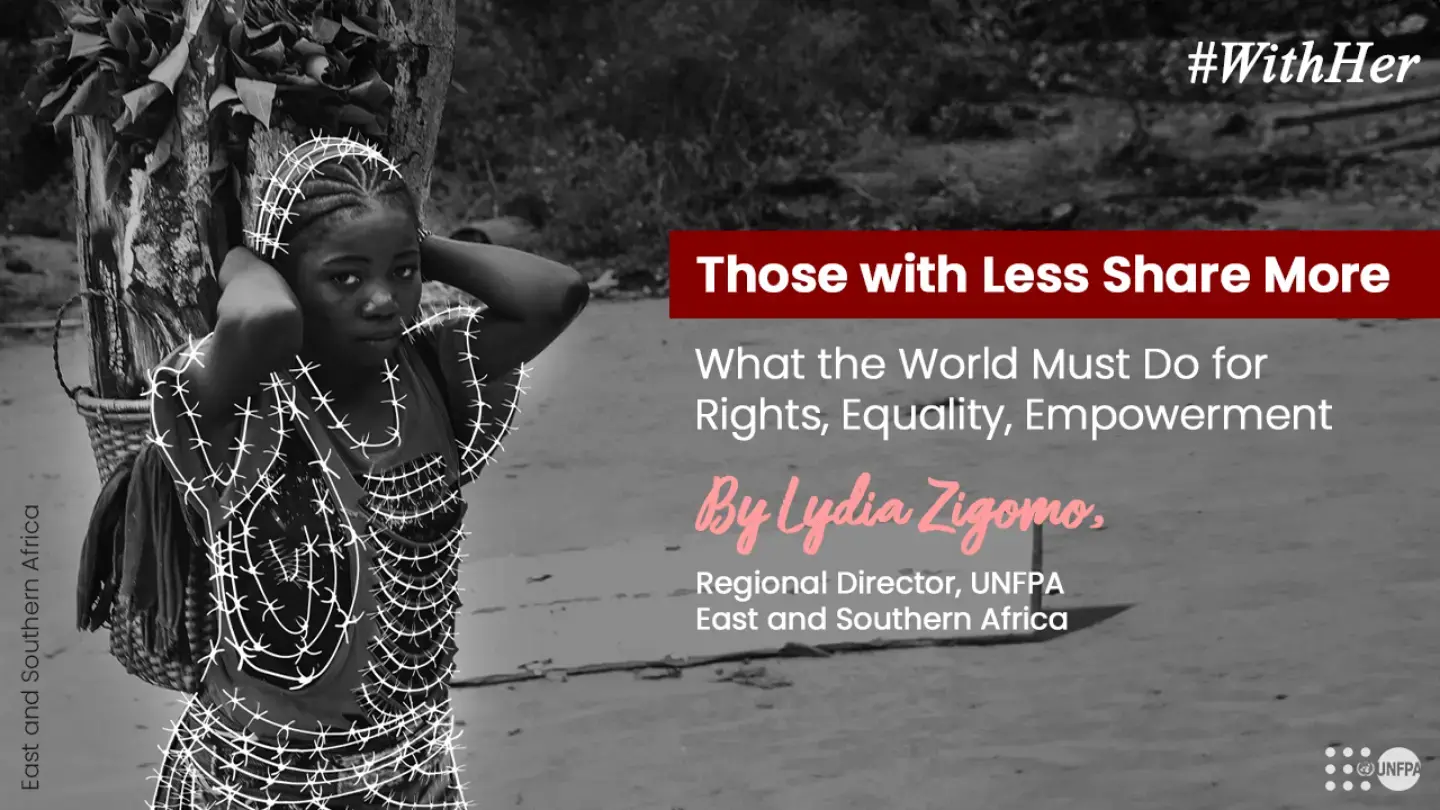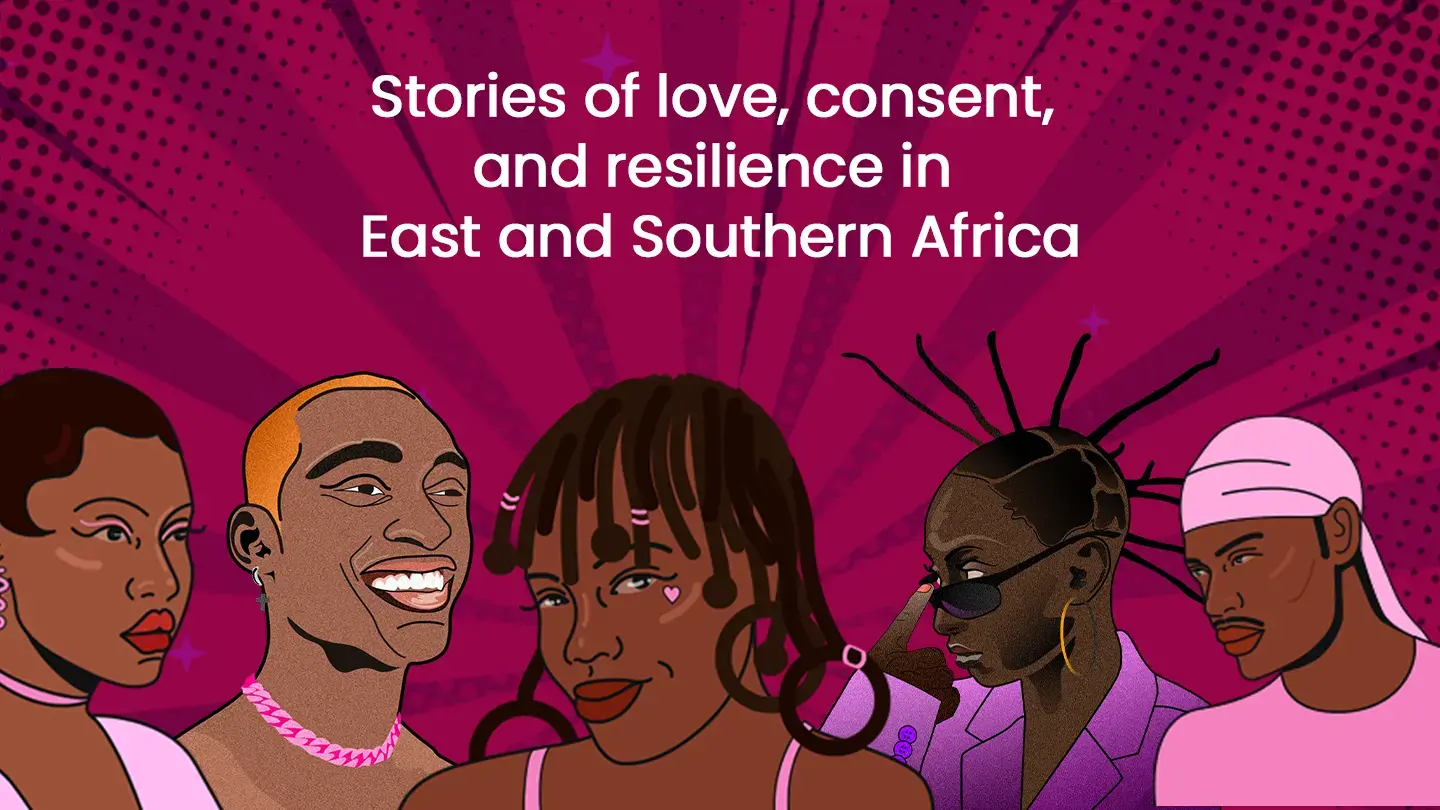Blog by Regis Bigirindavyi, gender, diversity, and inclusion intern at UNFPA Burundi
I’ve always believed that challenges are opportunities in disguise. My time as an intern at UNFPA Burundi was life-changing. As a person with disability, I have experienced firsthand how truly inclusive work environments can foster personal and professional growth while driving change.
I am the first in many things this year. First graduate in psychological sciences from the University of Burundi with a visual disability, and the first intern with a disability at UNFPA Burundi. As I recollect the valuable experience that has been part of the “Professional Knowledge Springboard” Programme, I hope to inspire other young people, especially those living with disabilities, to believe in their abilities and pursue their dreams. On the International Day of Persons with Disabilities, I want to remind everyone that inclusion is essential for building a fairer and more equitable world.
A warm welcome and an exceptional mentor
When I joined UNFPA Burundi, I was filled with both excitement and uncertainty. I was confident in my abilities but unsure of how my unique needs as a visually impaired person would be met. From day one, Fabrice Ntiranyibagira, my guide and colleague, played a helpful role in ensuring integration into the team.
Fabrice’s support went beyond the ordinary; he prioritized my inclusion, often putting aside his responsibilities to assist me. The time he spent with me reflects true humanitarian work, and his actions showed me what inclusion truly looks like in practice. Thanks to his nonstop encouragement, I thrived in my role and learned that great teamwork begins with empathy and authenticity.
My new vision
Losing my sight redefined my dreams, moving my aspiration from medicine to psychology. Together with the support of my parents and personal grit, I earned a degree in psychological sciences, becoming the first visually impaired graduate from the University of Burundi.
During this internship at UNFPA, I had the opportunity to contribute to several projects. I developed Braille materials for awareness campaigns, ensuring accessibility for individuals with visual impairments. Additionally, I conducted an analysis on access to support services for persons with disabilities who experience gender-based violence (GBV), aiming to highlight gaps and improve services. I also led workshops and discussions with university students, focusing on sexual and reproductive health (SRH) and promoting social inclusion for persons with disabilities. In addition, I proposed a project designed to reintegrate deaf survivors of GBV into society, addressing both social and emotional challenges they face.
These experiences have been personally enriching and giving me a moment of reflection that inclusion must be intentional and proactive.
Team at my side
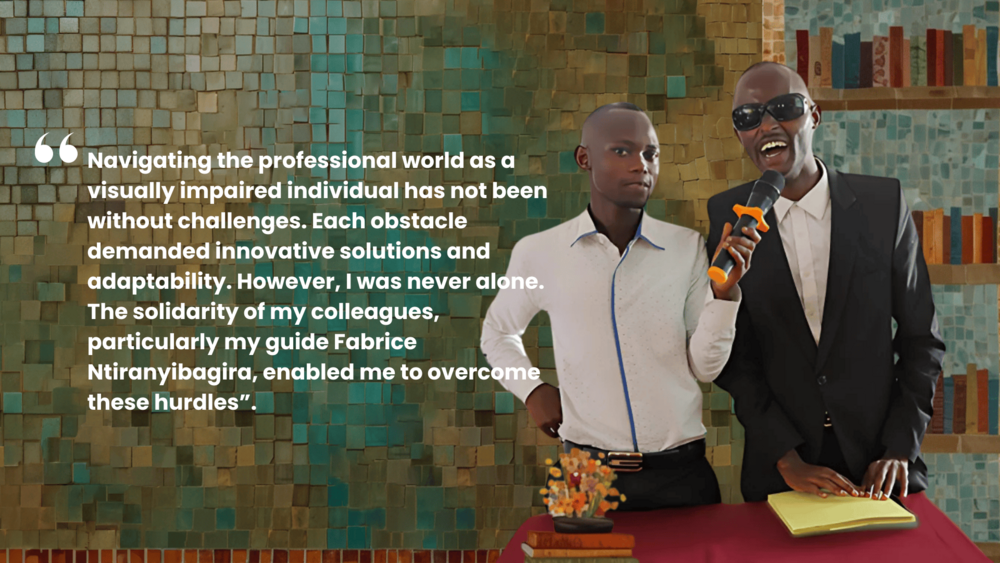
Navigating the professional world as a visually impaired individual has not been easy. Each obstacle demanded innovative solutions and adaptability. However, I was never alone. Colleagues and my guide, Fabrice Ntiranyibagira, enabled me to overcome these hurdles. Their understanding and collaboration transformed challenges into opportunities, proving that inclusion is not just an idea but a reality that can be achieved.
Fabrice did more than guide and support me, though, through his kind-hearted nature I learned a big truth: true humanitarianism applies in difficult circumstances where it seems there is no other solution but to help one another. Truly, without him, I would not have been able to realize all the projects I contributed to at the office, as he alone - among all those I lived with at university- offered to stand by my side, even at the cost of sacrificing his own time.
I am convinced that inclusion is a major issue for sustainable development. I aspire to a world where all individuals can live a dignified and fulfilling life regardless of their differences.

